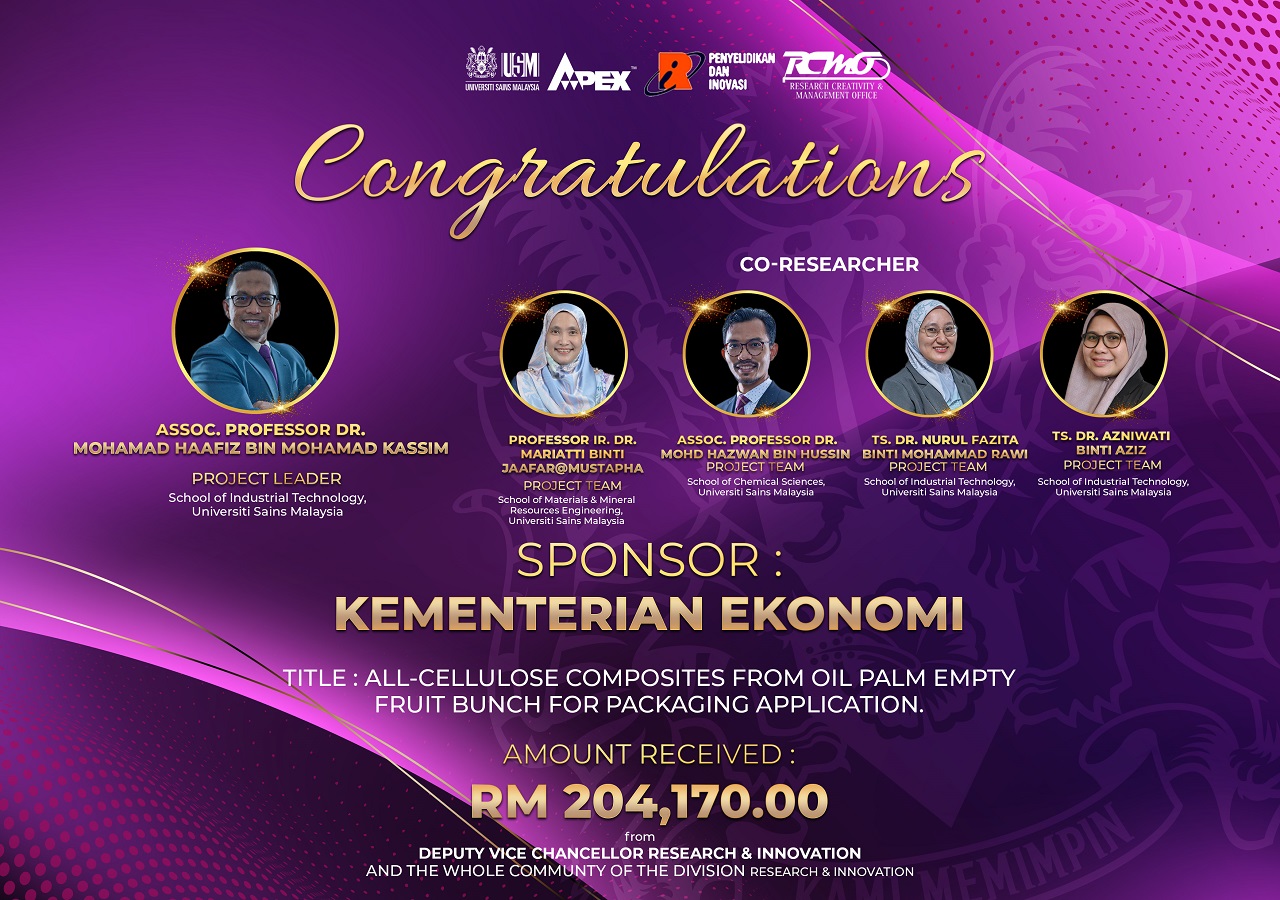TAHNIAH KOLONEL BERSEKUTU (PA) PROF. MADYA DR. MOHAMAD HAAFIZ BIN MOHAMAD KASSIM TAJAAN KEMENTERIAN EKONOMI

In response to the growing demand for biodegradable and eco-friendly alternatives, the exploration of sustainable materials has intensified. One such candidate is the oil palm empty fruit bunch (OPEFB)-based all-cellulose composite (ACC), offering a potentially low-cost and environmentally friendly solution. While research on ACC production has progressed, recent attention has turned towards non-wood-based cellulose sources to mitigate reliance on forest resources. Biomass waste, notably from the Malaysian palm oil industry, presents a significant opportunity. Oil palm trunks (OPT), oil palm fronds (OPF), and OPEFB serve as abundant sources of lignocellulosic waste, offering potential cellulose for ACC production. Despite previous studies on ACC films utilizing OPEFB cellulose, these approaches often involve complex and resource-intensive methods. This study focuses on the development of self-reinforced ACC films using cellulose fibers extracted from OPEFB. Fabrication involves surface selective dissolution in an 8 wt% LiCl/DMAc solution, followed by a straightforward solution casting process. While initial investigations have successfully enhanced mechanical and thermal properties, the comprehensive impact of dissolution time and cellulose content on critical properties for food packaging remains unexplored. This research aims to address this gap by systematically examining the effects of dissolution time and cellulose content on properties crucial for packaging applications. Specifically, the study will evaluate cytotoxicity, barrier performance, biodegradability, and opacity of the resulting ACC films. By utilizing a simple and cost- effective fabrication method, the goal is to develop a promising material suitable for replacing non- biodegradable synthetic composites in packaging applications, thereby advancing the potential of green materials in sustainable packaging solutions.
- Hits: 1331